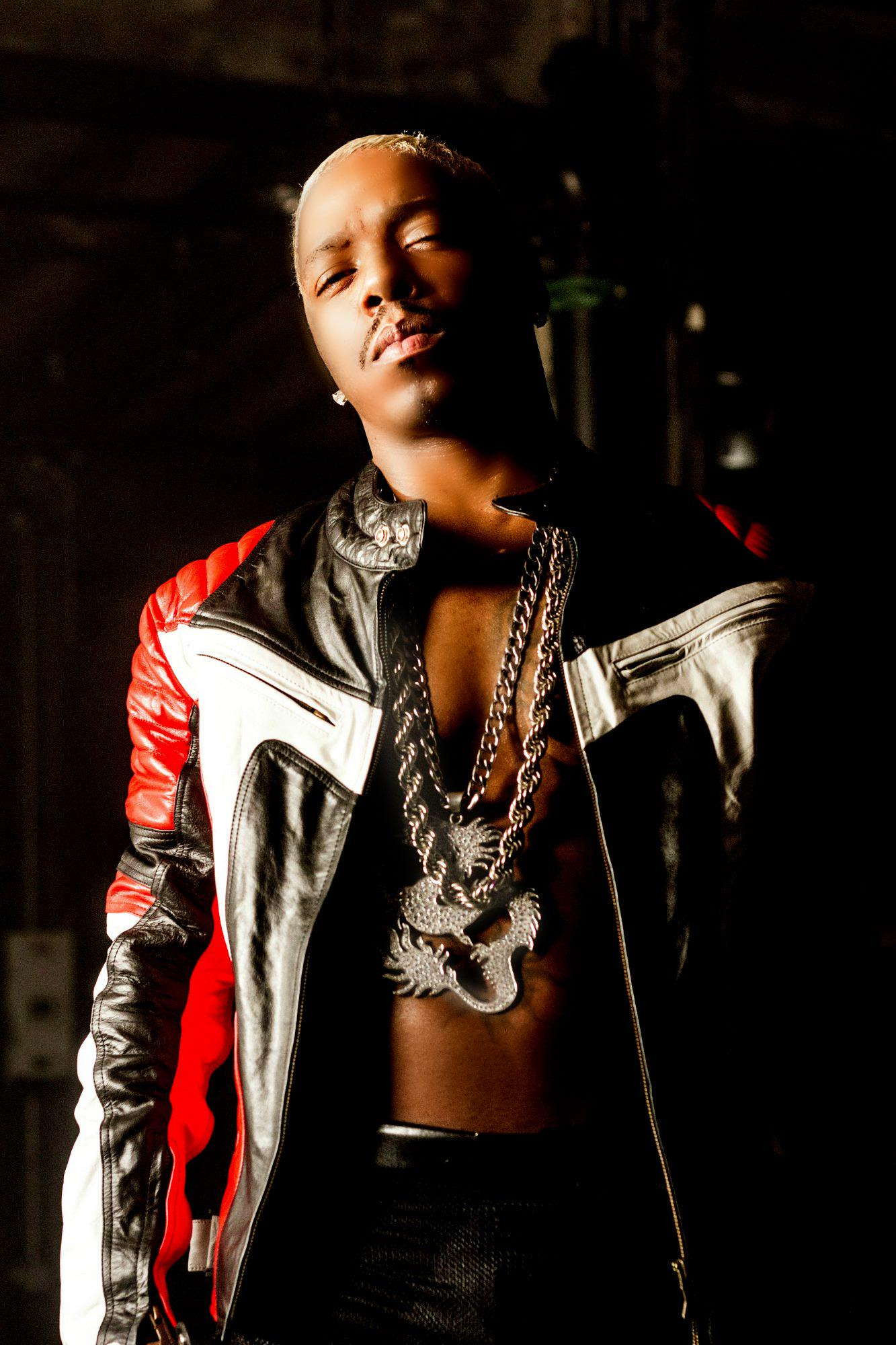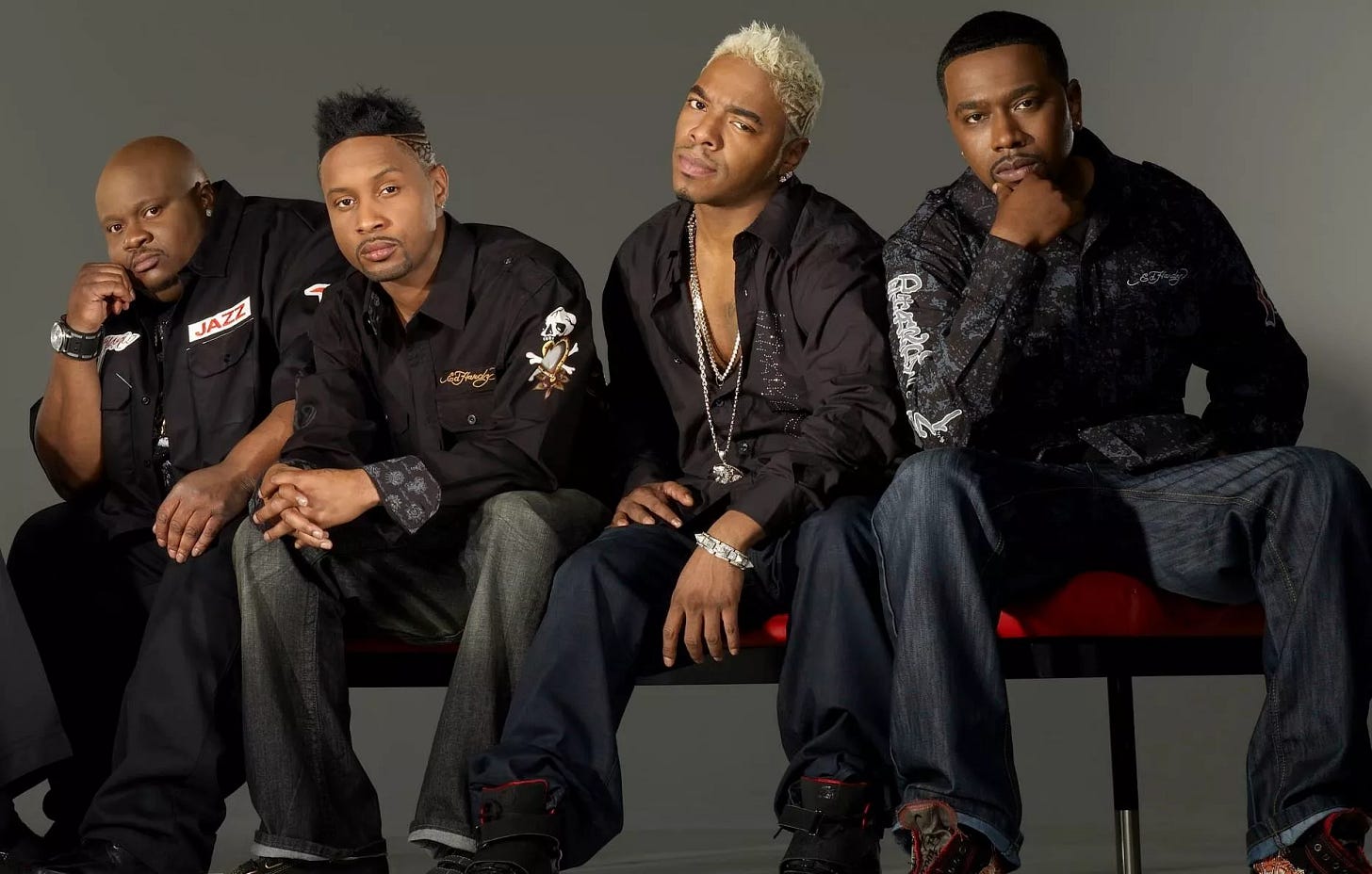Unleash the Icon: SisQó and the Re-Dragoning of Black Pop
A look back at the gold-selling voice and acrobatic showmanship that secured two number-one hits and a Billboard sweep, setting a new standard for artistry beyond the boy band.
In the neon-drenched, syncopated world of 1990s R&B, where impeccably harmonized groups ruled the airwaves, a singular, platinum-haired figure emerged from the pack: Mark “SisQó” Andrews. More than just the powerhouse lead singer of the multi-platinum group Dru Hill, SisQó became a cultural force, a flamboyant, acrobatic, and undeniably talented artist who dared to push the boundaries of the Black male pop star image, drawing a clear line from the soul-stirring past to the brazen new millennium.
Before the solo Dragon was unleashed, there was the collective fire of Dru Hill. Alongside Nokio, Jazz, and Woody, SisQó anchored an R&B quartet known for its raw vocal talent and a repertoire that blended hip-hop swagger with church-honed soul. They weren’t just singers; they were showmen, captivating audiences with tight harmonies and energetic choreography.
Dru Hill’s impact on R&B is cemented not just by their passionate harmonies, but by the accolades they’ve earned over the years. Their self-titled sophomore album was a major success, leading to two Soul Train Music Awards in 1998: one for Best R&B/Soul Album – Group, Band or Duo and a second for Best R&B/Soul Single – Group, Band or Duo for the breakout hit “In My Bed.”
More recently, the group’s enduring influence was recognized when they were honored with the prestigious Urban Music Icon Award by Black Music Honors, celebrating a spectacular career that includes over 40 million records sold worldwide.
Their catalog is a veritable greatest hits collection of ‘90s R&B. The chart-toppers include the sultry, R&B number-one hit “In My Bed,” which famously showcased SisQó’s gritty and powerful lead vocal; the emotional ballad “Never Make a Promise”; the infectious “How Deep Is Your Love,” which also soared to R&B number one; and their instantly recognizable, platinum-selling debut single, “Tell Me.”
When the group members took a hiatus for solo ventures, SisQó didn’t just step out—he exploded. His 1999 debut, Unleash the Dragon, was an undeniable commercial triumph, peaking at number two on the Billboard 200. This was a new archetype: a six-pack-wielding, dragon-emblazoned, blond-dyed showman whose appeal transcended the traditional R&B/Hip-Hop market.
While Dru Hill defined an era of R&B harmony, lead singer SisQó transitioned into a dominant solo career, showcasing both his playful flair and serious vocal prowess.
His solo breakout moment arrived with the “Thong Song,” a novelty smash that was anything but fleeting. This global phenomenon hit number three on the Billboard Hot 100 and successfully blurred the lines between Pop, R&B, and Hip-Hop. Its cultural impact was so massive it even earned an MTV Video Music Award for Best Hip-Hop Video in 2000.
But SisQó wasn’t content to be defined by a single dance craze. He immediately followed up with “Incomplete,” a powerful, sweeping ballad that silenced any doubts about his talent. The track proved his immense vocal range and emotional depth, soaring all the way to number one on the Billboard Hot 100 and cementing his status as a true, multifaceted vocal icon.
The year 2000 was a SisQó takeover, culminating in an astonishing sweep at the Billboard Music Awards, where he won six major honors, including Male Artist of the Year and R&B/Hip-Hop Artist of the Year.
SisQó’s genius lay in his willingness to be a full-spectrum entertainer. He brought Michael Jackson and Prince-level flamboyance and showmanship back to the forefront of Black pop. The flashy hair, the dramatic fashion, the incorporation of dance acrobatics that would later influence acts like B2K and Chris Brown—it was all a deliberate, high-risk creative choice that paid off massively.
As Heavy D, the former president of Uptown Records, once noted:
“Sisqo definitely has a flamboyancy that’s been kind of missing for a long time. He dares to be different. The hair really says a lot. He’s an R&B star, and coloring his hair blond, going there, is kind of rock ‘n’ roll. That’s dangerous. But he don’t care.”
His ambition was clear, as he himself stated:
“I try to take the approach of a hip-hop artist, but when it comes to imaging, I’ve been following the pattern of Michael Jackson, Janet Jackson, Madonna... I want my name to be up there with those artists; for people to say, he’s one of those iconic figures you can’t put in a box.”
This fearlessness carved out space for future male R&B stars to embrace a more visually aggressive, pop-leaning, and overtly sexualized image without sacrificing vocal integrity.
SisQó’s initial solo run may have been brief by industry standards, but his impact is undeniable. He didn’t just sell records; he shifted culture, sparking a nationwide discussion on fashion that extended to every pop culture outlet. Furthermore, his savvy decision to retain ownership of his masters for most of his debut album highlights a business acumen that paved the way for the artist-empowerment models we see today.
While the years following his sophomore effort, Return of Dragon, saw him step out of the relentless media spotlight, SisQó has consistently proven that the Dragon never truly sleeps. His recent years have been marked by continued touring with Dru Hill, reminding fans of their classic catalog, and a return to the public eye with appearances on shows like The Masked Singer, demonstrating his enduring vocal prowess and showmanship. His long-awaited third solo album, Last Dragon (2015), served as the final chapter in his ‘Dragon’ trilogy, a testament to his dedication to his personal artistic narrative.
SisQó defined the Black male pop star of the 90s/00s by being uncompromisingly himself. He was the soulful crooner, the hip-hop collaborator, the dance machine, and the visual provocateur, all rolled into one platinum package. He didn’t just sing the hits—he performed them with an intensity that burned itself into history. The Dragon’s roar may come and go, but his fire remains eternal.




